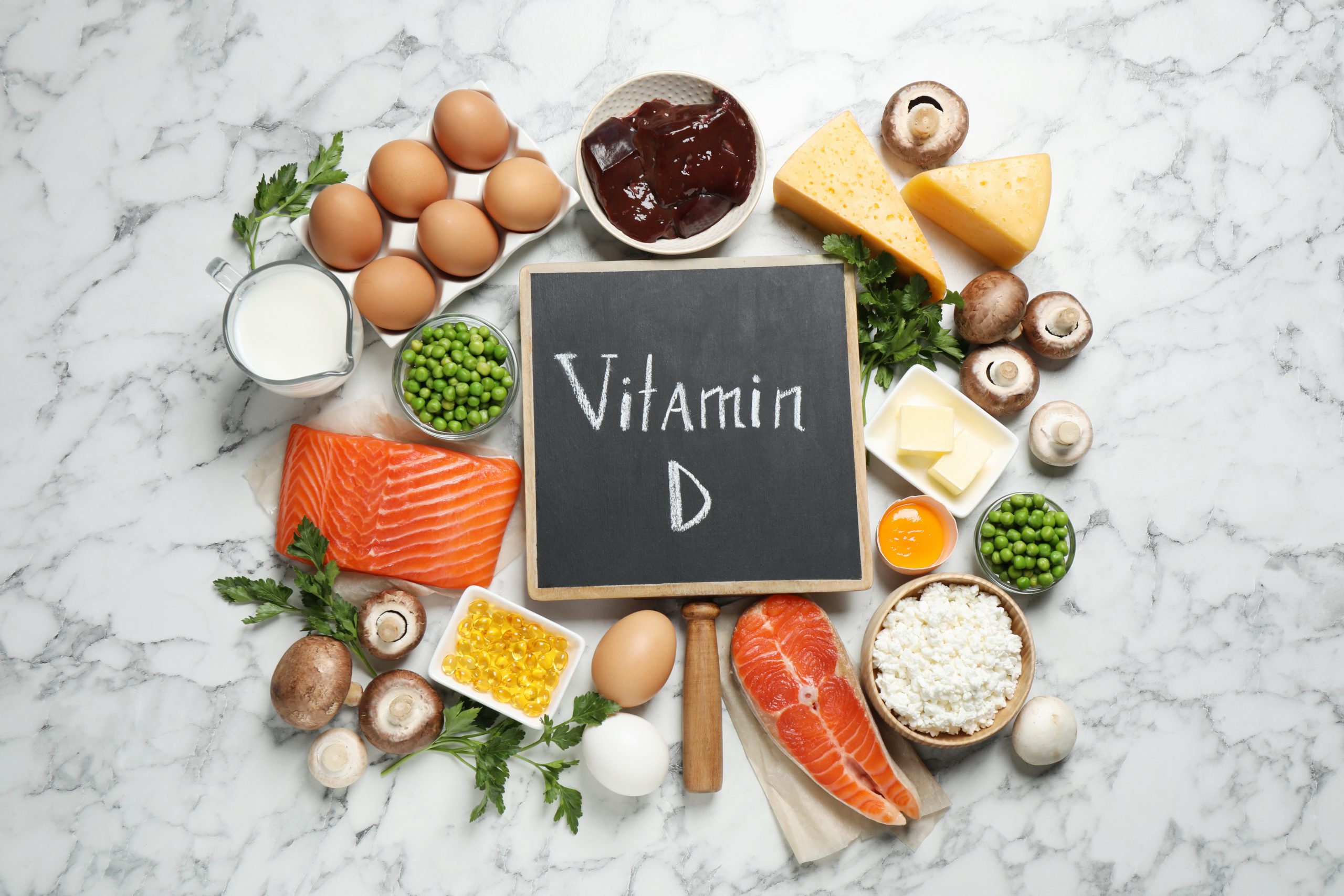 Elizabeth Miller, ND
Elizabeth Miller, ND
Naturopathic Physician
Read Biography Schedule an Appointment
Vitamin D is a fat-soluble vitamin. Through the diet, we can get vitamin D3 from eating fatty fish and in small amounts from cheese, egg yolk, and beef liver. It is synthesized in our skin from sunlight.
During the winter months in Vancouver, from November through to March, there is no doubt a lack of sunny days. In fact, living above 35 degrees northern latitude is a risk factor for deficiency as there is not enough UVB in winter months for adequate production of Vitamin D3 (1).
Vitamin D keeps our bones healthy, supports our immune system, regulates our levels of calcium and phosphorous, and supports insulin function (2). Vitamin D may be useful in treating or preventing a number of conditions including skin conditions such as eczema, colds, osteoporosis, chronic low back pain, asthma, mood, seasonal affective disorder, fatigue, diabetes, and a variety of autoimmune conditions (2).
With living in a zone for high risk of deficiency, it is recommended to support our levels through supplementation. Vitamin D3 supplement dosage depends on age and health, but for children and adults between the ages of 9-70, the lower range is 600 iu a day, and the upper range is 4000 iu a day (3). As Vitamin D is a fat-soluble vitamin, it is stored in our tissues, and taking too much Vitamin D can be toxic. Typically I recommend Vitamin D3 supplements to be in liquid or lozenge form.

If you are uncertain if you are getting adequate Vitamin D, a blood test can be done which may guide dosage recommendations. This blood test is typically not covered under MSP unless you have underlying health conditions that may cause low Vitamin D levels or in specific clinical scenarios.
If interested in testing, Vitamin D is a test that can be done through Naturopathic Doctors at Vitalia Health Care and may be covered under your extended health care plan.
This is intended for informational knowledge only and is not meant to diagnose or treat. If you are concerned about your Vitamin D levels please discuss with your primary care provider.
Elizabeth Miller, Naturopathic Doctor
1. Hanley, D. A. et al. Vitamin D in adult health and disease: a review and guideline statement from Osteoporosis Canada. Can. Med. Assoc. J. 182, E610–E618 (2010
2. Gaby, A. Nutritional Medicine, Second Ed. Fritz Perlberg Publishing, 2017.
3. Vitamin D testing- BCGuidlines.ca foods containing vitamin d: cheese, eggs, mushrooms, milk, butter, peas canned in oil.

